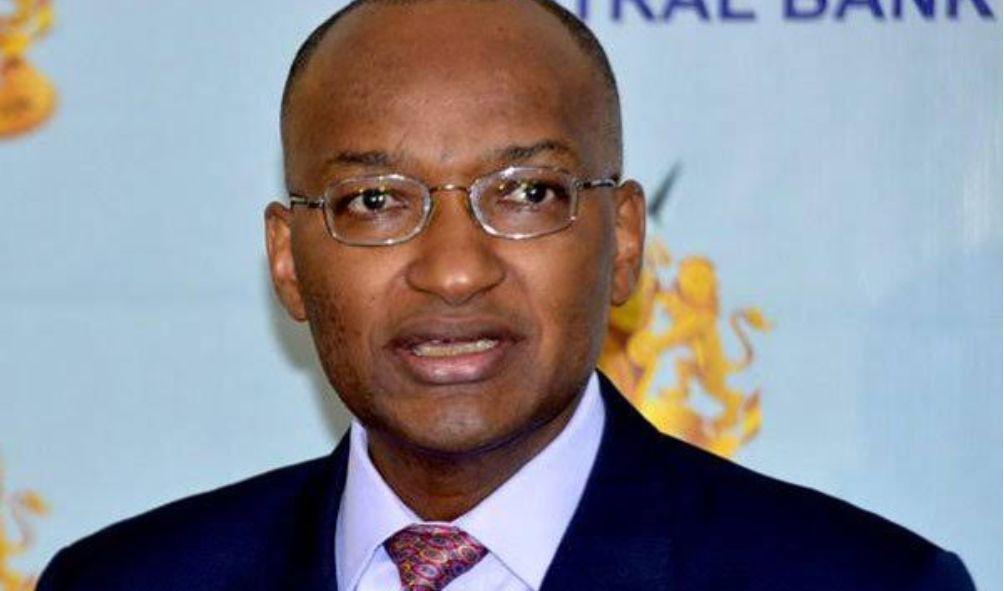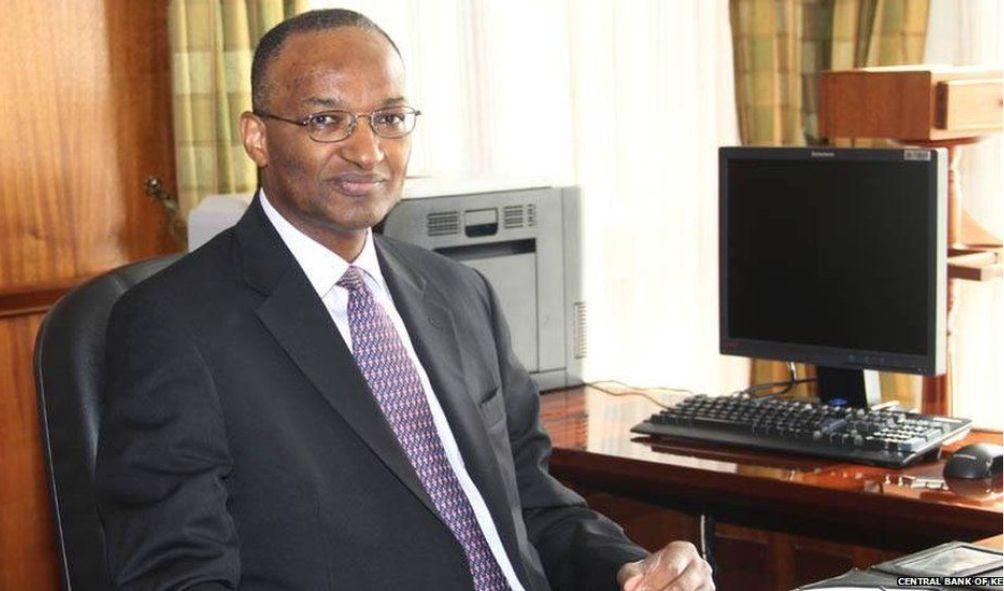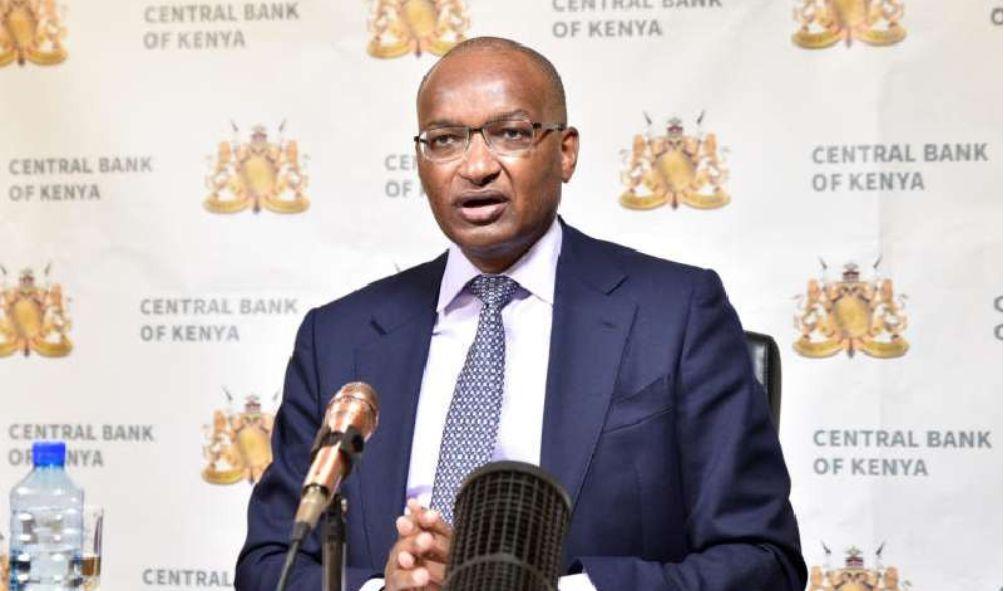Patrick Njoroge: The Fearless Guardian of CBK’s Legacy Against Banks and Tycoons
In the past eight years, Central Bank head Patrick Njoroge’s demeanor has changed from a friendly smile to a penetrating glare.
Since Dr. Njoroge’s appointment as Governor of the Central Bank of Kenya (CBK) on June 19, 2015, some of the individuals he was to supervise and, as such, maintain a distance from have become his enemies.
He leaves office with bankers, traders, analysts, and financial journalists in his infamous black book.
New entries in the book include manufacturers who dared to tell the media that the country was experiencing a dollar shortage. His suspicions, or paranoia, if you prefer, may not be completely unfounded.
Dr. Njoroge disobeyed the directives of two presidents — Uhuru Kenyatta and his successor William Ruto — to relax stringent anti-money laundering rules requiring banks to review transactions exceeding Shl 1 million ($10,000).
When MPs threatened to veto the renewal of his term for failing to relax these rules, he laughed off the threats, stating that he would not lose a night’s sleep over the failure to extend his term.
Although he remained silent on the directive from then-President Kenyatta, his message to the legislators was unequivocal: The nation could not afford to slacken its efforts to protect its financial system from potential and actual attacks.
ALSO READ: Exclusive: MPs Rally Behind Ruto’s First Budget, Demand Additional Ksh500 Million
Kenya would be ostracized by the rest of the world for being a haven for criminals, Njoroge told the legislators who were plotting to change these irritating rules that had made their visits to banking halls embarrassing.
“The effect would dwarf that of the Goldenberg scandal, with its record inflation and triple-digit decline in the value of the Kenyan shilling,” Njoroge told the Kenyan parliament.
Holding one’s head high

To his credit, Dr. Njoroge, a member of the Opus Dei order of the Catholic Church, is walking away with his head held high.
In contrast to the majority of his predecessors, who were either removed from office during the middle of their first or second terms or implicated in scandals, Njoroge leaves the corner office of CBK unsullied.
Yet, after eight years in office, the man who captivated Kenyans with his piety and frugality, telling MPs that he owned no property and donated all of his salaries to the church, leaves the corner office with a degree of unpopularity.
However, his perceived enemies have fabricated a story claiming that Kenya experienced one of its worst dollar shortages during his tenure.
By going after speculators with excessive zeal, Dr. Njoroge brought down the entire forex interbank market. The exchange rate, which he made so many enemies defending, has increased.
The shilling has been in a freefall, reaching daily record lows. It is currently trading at an average of 138.87 dollars per euro.
Inflation, a measure of the cost of living that examines the overall increase in consumer prices over 12 months, has stubbornly remained outside of the target range of 2.5% to 7.5% for the past year.
In an earlier interview, he stated that their vision “exceeds price stability and encompasses a broader mandate”
Njoroge’s grip on the reins of power at CBK has dramatically loosened as time whittles away the remaining days of his tenure as head of the country’s premier bank.
There are rumors that his subordinates are disobedient. According to reports, bankers have also broken out the champagne as they count down the hours until June 18.
Loss of control was inevitable for a transitioning man. Njoroge’s rift with members of the financial community, colleagues, and government officials, however, has been particularly spectacular.
Background

Njoroge was born in 1961 in Central Kenya. His mother was a teacher, while his father was an education officer. This instilled in young Njoroge a love of reading.
At Mang’u High School, where he received his 0-Level education, he enjoyed reading the Anthology of English Literature in addition to the Bible, which, according to a previous interview, had a significant impact on him.
His parents instilled in him not only a reading culture, but also discipline, respect for others, and piety. For his undergraduate degree, he initially desired to study the sciences, specifically electrical engineering but ultimately chose Economics because he believed it would have a greater impact on improving people’s lives.
He stated that in times of adversity, he relies on a sense of a greater purpose than simply resolving the problem or overcoming the adversity.
“For instance, seeing the millions of people whose lives will change if the problem is solved,” Njoroge stated in a previous interview.
He spent nine years at the Ministry of Planning and National Treasury before joining the International Monetary Fund (IMF).
He spent ten years at the IMF in Washington, rising to the position of deputy managing director before leaving in 2015. His career path had been uncomplicated.
“Crime scene”
On June 19, 2015, when Njoroge was appointed Kenya’s ninth CBK Governor by then-President Kenyatta, he was thrust into a crime scene.
The term “tenderpreneur” was in vogue. In a National Youth Service (NYS) scandal involving $791 million, a little-known hairdresser had withdrawn more than Sh100 million in cash from a bank without any security precautions three months earlier.
Yes, you could take such vast sums of money into or out of a bank with minimal or no questioning. Such large sums of money also contributed to Nairobi’s bustling Central Business District (CBD) nightlife.
Suddenly, Kenya’s nouveau riche began frequenting upscale nightclubs and purchasing expensive drinks nightly. In the suburbs of Nairobi, opulent apartments that would remain vacant for an extended period arose.
A substantial amount of dirty money entered and left Kenya. Dr. Njoroge, whose Yale University thesis modeled the effects of financial crises, knew that the weakest link was the banks.
We do not engage in private transactions, CBK informs Gachagua. Early in the 1990s, banks were complicit in the Goldenberg scandal, in which the country lost nearly 10 percent of its gross domestic product (GDP) due to the fictitious export of gold.
In other parts of the world, particularly developed countries that are members of the Financial Action Task Force (FATF), a global anti-money laundering watchdog, a person could not enter or exit a bank with a bag full of cash without answering some challenging questions about the source or purpose of the funds.
CBK had acquired three banks within nine months of Dr. Njoroge’s appointment: Dubai Bank, Imperial Bank, and Chase Bank.
The soft-spoken, modest bachelor who stunned Kenyans by rejecting a luxurious house in Muthaiga Estate, Nairobi, in favor of a simple communal home in Loresho, suddenly revealed his fangs.
Profit fixation
It is no longer acceptable for banks to prioritize profits over people (customers and employees). He stated that banks had to maintain accurate books.
“Gone are the days when banks would wait for one to declare profits before competing to see who had the most impressive results. Dr. Njoroge stated, in response to the re-provisioning of the National Bank and Chase Bank results, which saw both financial institutions report losses after being forced to correctly book their non-performing loans, that “we are now insisting on the accurate representation of the results.”
Chase Bank was unable to survive the new stringent regulations, resulting in a bank run at the mid-sized financial institution.
Dr. Njoroge never closed another bank after that, with the CBK instead opting for arranged or forced marriages. However, the message was clear: banks had to be managed and operated with care. Although cash-handling regulations for amounts exceeding Shl 1 million were part of Kenya’s anti-money laundering and countering the financing of terrorism (AMUCFT) framework, they were never adopted by a local body.
Instead of total compliance, all nations can negotiate exemptions and exceptions to global regulations. However, Njoroge insisted that the rules be strictly enforced, thereby escalating tensions between customers and banks.
Fearing the Governor, banks were unable to stand up to him. MPs addressed their complaints.
“When I received my mortgage, Barclays Bank asked where the funds originated. “When you sell your three camels, you are asked where the money is coming from,” complained the then-majority leader of the National Assembly, Aden Duale, in September 2019.
In that year, one of the local banks declared a flamboyant businessman persona non grata due to the strict implementation of Know Your Customer (KYC) regulations.
The business magnate protested, but Dr. Njoroge stood firm. “As I recently stated in the Kenyan Parliament, more than 99 percent of bank accounts in Kenya hold less than Shl one million, so the vast majority of customers are not even subject to this requirement.
“Even for those who do – in the process of buying and selling land or property, or a motor vehicle – the majority find the requirement simple to meet,” Dr. Njoroge explained.
Selfish motives
Central bankers learned from the demise of so-called political banks in the 1990s that they are not always founded by individuals interested in conducting ethical financial transactions.
Some shareholders have used banks to line their pockets by over-lending to themselves at extremely low-interest rates or circumventing other prudential regulations.
Dr. Njoroge believed he was addressing the issue by closing the three banks.
Several infractions, ranging from NYS-style scams to “speculating against the shilling,” resulted in monetary fines in the millions imposed on banks. The financial analysts went into hibernation, while journalists faced off with the governor.
It is possible that Dr. Njoroge was more opinionated than pragmatic. Even at CBK, according to those who know him, it was his way or the highway. Any indication of opposition was met with a sledgehammer.
If you could call it that, his failure was not necessarily the result of a character flaw. It may have been an estimation error. They say that good intentions pave the road to hell.
Indeed, speculation had transformed the country’s foreign exchange (forex) market into a haven for opportunists. However, his overzealousness weakened a platform that allowed banks to borrow dollars from one another.
He also appears to have regretted closing the mid-sized Chase Bank in April 2016, despite his insistence that the bank’s significant deficiencies led to the decision to close it.
“The bank had ties to virtually every region of the nation, in terms of people, industries, and more… Given its negative impact on the population and the industry in the short term, this was not an easy decision to make, as Dr. Njoroge explained.
Last week, as he was preparing for his final post-Monetary Policy Committee (MPC) briefing, he received the sad news that his mother had passed away. Even those who wished to celebrate his departure were required to return their champagne.
Financial journalists anticipated that Dr. Njoroge would not attend the briefing, which would take place a day after the MPC meeting, as has been customary. The meeting was scheduled for last Tuesday.
Instead, the briefing was moved to Wednesday so Dr. Njoroge could attend the funeral of his mother on Tuesday. When asked when he would vacate his position, Njoroge replied, “I am still working.”
Patrick Njoroge: The Fearless Guardian of CBK’s Legacy Against Banks and Tycoons
HEY READER. PLEASE SUPPORT THIS SITE BY CLICKING ADS. DON’T FORGET TO HIT THE NOTIFICATION BELL FOR MORE UPDATES AROUND THE GLOBE.
